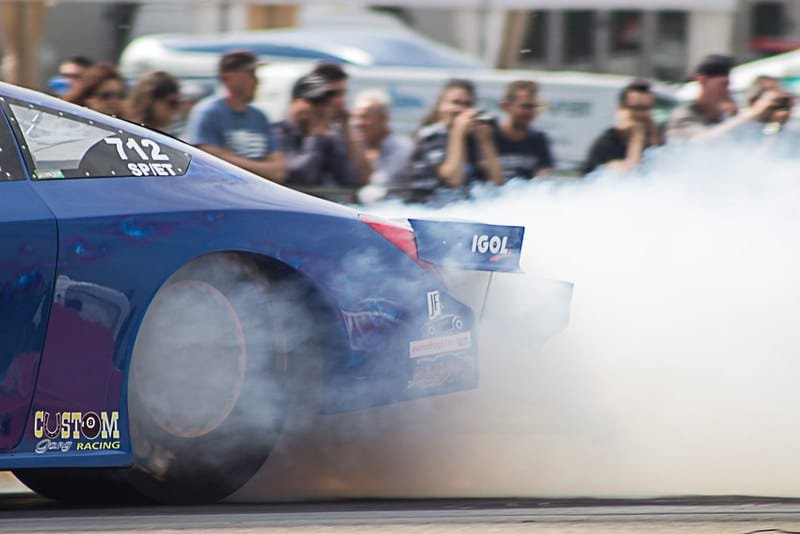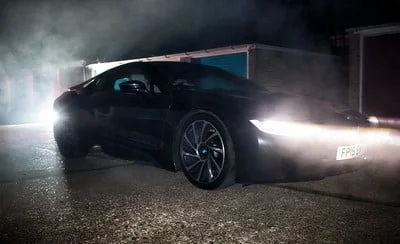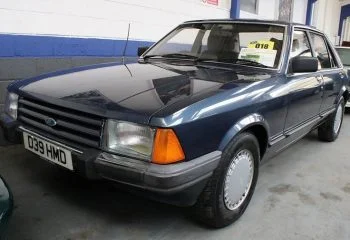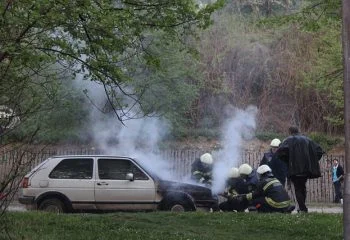It’s a sound you can’t miss: the high-pitched whistling noise coming from your car. You know something is wrong, but what? This blog post will help you diagnose why is my car whistling and how to fix it, so that you can get back on the road again with confidence!
From identifying different types of whistles to exploring common causes and necessary repairs – we cover everything you need to understand why your car is whistling and steps to take for a safe repair.
What's in this post?
9 Reasons Why Is My Car Whistling?
1. Worn-Out Brake Pads
Worn brake pads can cause strange and worrying sounds when coming to a stop, so they should get the attention they need. Replacing worn brake pads is an easy task that starts by disassembling the wheel, removing the bolts, and hanging the caliper with a small wire.
Remove and replace the old pads with new ones, and then reassemble the wheel and calipers to complete. With this simple tweak, you will ensure your car brake safely every time.
2. Bad Engine Bearings
The car’s distinct whistling sound is not to be underestimated, as it originates from the poor engine bearings. It’s easy to detect, but will become louder if you don’t repair it without delay.
If a knocking or rubbing noise is heard from the hood when turning at low speeds, you know that something is amiss and the engine mounts require attentiveness.
When allowed to persist for too long, this noise can affect other vehicle components, eventually locking up the engine. It would be wise for any driver to bring their car to an auto shop once they hear the unmistakable whistling – an expert technician should be able to determine what requires replacement in a timely manner and guarantee a job well done.

3. Defective Radiator Cap
Malfunctioning car radiators are one of the most common reasons for a car making whistling noises. To repair the issue, one must turn off their vehicle and wait until the engine is completely cooled.
Following this step, they must find and open the radiator cap with a thick rag to ensure safety. Then there are several steps that need to be taken: loosen the drain plug and drain the radiator, making sure that when replacing it with a new one that it fits correctly and add fresh coolant before screwing it back in place.
By doing this properly, further damage can be avoided and keep your car’s radiator functioning as intended.
4. Fuel Injectors
If you hear a distinctive whistling sound when driving your car, it could be caused by dirty fuel injectors. This will also be accompanied by a distorted air-fuel ratio as well as the Check Engine Light coming on.
The good news is that clogged fuel injectors are usually easy to fix; an injector kit can be purchased and used to disconnect the car’s fuel pump from both the fuel pressure regulator and the injector. Connecting the cleaning kit to the fuel connector will also prove beneficial.
After releasing the pressure by taking off the gas cap, rotate your car so that the cleaning fluid enters into the injector; after removing the cleaning kit, reinstall all components of your vehicle. The noise should then subside.
For those who are unsure of how this is done, it may be best to enlist help from a professional mechanic for added assurance.
5. A Broken Hoses
Fixing broken hoses is essential for maintaining the optimal performance of a car. When a hose ruptures, it can create leaking issues, as well as a surprisingly loud whistling noise.
This sound will come from the escaped air and coolant that circulate through the car’s engine. Air leaks are generally easier to detect than coolant and will often occur near the air intake manifold and air filter. Luckily, these tubes are usually made of rubber and finding an inexpensive replacement or temporary seal shouldn’t be difficult.
However, because of this material’s weaknesses, it won’t last forever. By using soapy water, any bubbling or escape of air can easily be detected in order to take care of the problem quickly.
6. Loose Serpentine Belt
When it comes to the car whistling sound, loose and worn out serpentine belts can be responsible. A serpentine belt is a continuous belt that powers a variety of equipment inside an automotive engine, from the water pump to alternator.
While these belts are designed to be resilient against water and wet conditions, if the belt traverses a puddle or has an internal leak this can create at least some sound of whistling.
This same problem can be caused by either damage or lack of tension in the belt itself. Fortunately, this is easily ascertainable just with a visual inspection: if there is too much slack or signs of visible wear and tear, then it’s probably time to adjust the tension or replace the belt entirely.

7. A Vacuum Leak
While a whistling noise coming from cars when accelerating can be irritating, it typically means that the car has a vacuum leak. This happens when the hoses used to control airflow in the car are broken or faulty.
While it is possible to diagnose and treat this problem yourself, it’s usually best to get help from an experienced mechanic who knows how to find the problematic hose and make the appropriate repairs or replacements.
Many amateur mechanics might end up spending more time than necessary attempting to do this job correctly – so knowing when it’s time to take your car in for help can save a lot of time and energy.
8. Window Seals
With acceleration, when other causes such as vacuum leaks have been ruled out, it is likely that the source of the whistling noise is worn window seals. This is a familiar problem and easy to check in your vehicle.
Over time, prolonged exposure to the elements can cause deterioration in condition leading to this issue. A steady whistling noise should be addressed immediately as it can quickly become a more serious and disruptive problem. The solution involves replacing the worn window seals with a new part than can be easily done yourself.
First peel off any existing seals, then clean down the door frame before applying an adhesive and securing the new tubing into place, leaving you with a fairly straightforward repair and silence from the wind against your windows once again.
9. Air In The Radiator Or Overheating
If the radiator of your car is producing a whistling sound, it could be a symptom of a severe problem. It may be caused by the liquid in the radiator boiling or due to air getting into the system.
Boiling radiator fluid can appear similar to the noise made when water is boiled in a kettle. If this happens, you should switch your car off and limit driving until you have gotten professional help or taken care of the issue yourself.
Air being trapped in the high-pressure environment may produce similar noises as it attempts to escape.
This could indicate there is an issue with the head gasket or air pockets in the radiator which should be viewed by an experienced mechanic, as issues with overcooling are potentially very dangerous to your engine.
Final words
In conclusion, if you hear your car emitting some strange noise or whistling sound it can be due to a lot of potential causes. The most common cause of why is my car whistling likely because of a loose belt in the engine which can subsequently lead to other problems.
In any case, if you’re hearing an odd sound coming from your car it’s worth having a qualified mechanic take a look under the hood just to be sure. Additionally, keep up with routine maintenance and checkups to ensure your car’s components are running optimally and there isn’t anything out of the ordinary that requires servicing.
This may help prevent more serious damage down the road, save you costly repairs, and ultimately give you more years of reliable driving pleasure in your vehicle.





